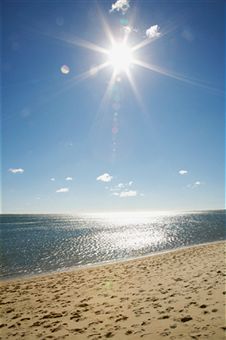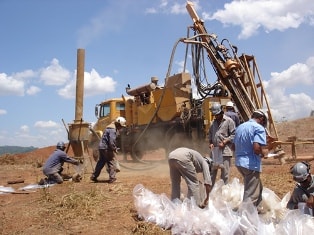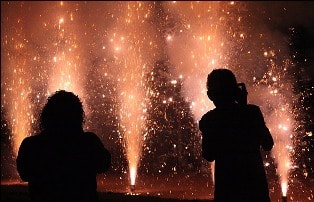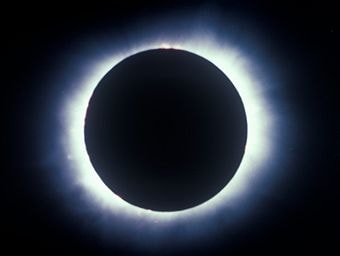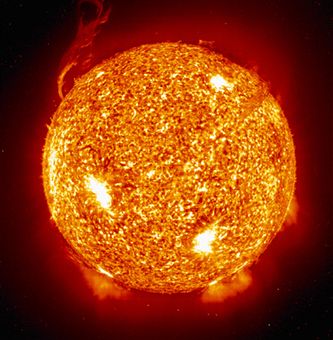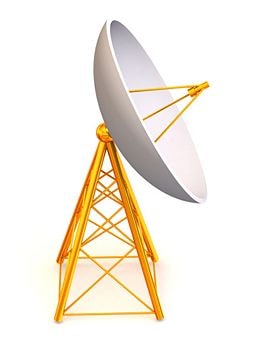خورشید
فایل صوتی ندارد
The Sun
Ever since early humans first became aware of their environments, they have recognized the importance of the sun’s heat and light to life on the earth. People around the world have worshipped the sun as a god, and more recently the sun has been the subject of intense study by scientists. The sun is actually a star, and is described by astronomers as a rather “average” star. But the sun is much closer to the earth than any other star. The sun’s average distance from the earth is only 150 million kilometres. Although this distance is obviously very great, other stars are much farther away. At the sun’s relatively close distance, light can reach the earth in about eight minutes. The next nearest stars to the earth, however, are so far away that their light takes four years to reach the earth! Given these unimaginably vast distances, it is easy to understand why the sun seems so much brighter than any other star.
The sun is much larger than the earth or the moon. In fact, the sun’s diameter is about 110 times that of the earth, and about 400 times that of the moon. This might seem surprising, given that the sun and moon appear to be of virtually equal size when we look at them in the sky. However, the sun is about 400 times farther away from us than the moon is, and this explains why the sun and moon appear to be the same size. This fact is a remarkable coincidence, and it makes possible the occurrence of spectacular solar eclipses, when the moon seems to cover the sun almost perfectly. Note that even though the sun is a fascinating object of study, you should never look at it directly. Even if you are wearing dark sunglasses, the intense radiation from the sun can seriously damage your eyes. The sun is composed of densely-packed gases, mainly hydrogen and helium. At the core of the sun, hydrogen is transformed into helium by the process of nuclear fusion, which releases tremendous energy.
Temperatures at the sun’s core are estimated to reach 15 million degrees Kelvin; at the surface of the sun, the temperatures are much cooler, reaching only a few thousand degrees. The sun will someday use up all of its hydrogen, causing it to gradually die. But do not worry about this-scientists estimate that the sun will have enough fuel for at least another six billion years! Periodically, there are magnetic storms on the surface of the sun. Astronomers refer to these disturbances as sunspots. The activity of these sunspots sometimes causes interference with radio transmissions here on earth, and is responsible for the “northern lights” that are sometimes seen at night in northern latitudes.
The activity of sunspots seems to rise and fall in an eleven-year cycle, but there are also some longer periods of high or low sunspot activity. Scientists believe that periods with few sunspots tend to be associated with cooler temperatures on earth. Besides providing us with the light and heat that are needed for the survival of life on earth, the sun also gives us much of the beauty that we see in the world around us. Anyone who has watched the colorful sky at sunrise or sunset will surely agree!
intense
source 1
serious and often involving a lot of action in a short period of time
intense competition
It was a period of intense activity.
source 2
intense activity is very serious, uses a lot of effort, and often involves doing a great deal in a very short time:
The job demands intense concentration.
At least 3000 people were killed in a week of intense fighting.
averagesource 1
typical or normal
40 hours is a fairly average working week for most people.
children of above/below average intelligence
£20 for dinner is about average.
source 2
an average amount or quantity is not unusually big or small:
They have an average-size front garden and a large rear garden.
of average height/build/intelligence etc
He was in his late twenties and of average height.
vast
source 1
extremely large in area, size, amount, etc.
Synonym: huge
a vast area of forest
a vast crowd
a vast amount of information
At dusk bats appear in vast numbers.
His business empire was vast.
In the vast majority of cases, this should not be a problem.
Your help made a vast difference.
We’ve hired a marquee at vast expense.
source 2
extremely large [= huge]
vast amounts/numbers/quantities/sums etc (of something)
The government will have to borrow vast amounts of money.
The refugees come across the border in vast numbers.
vast areas/expanses/tracts etc (of something)
vast areas of rainforest
In the past five years, there has been a vast improvement in graduation rates.
diameter source 1
a straight line going from one side of a circle or any other round object to the other side, passing
through the centre
the diameter of a tree trunk
The dome is 42.3 metres in diameter.
source 2
a straight line from one side of a circle to the other side, passing through the centre of the circle, or the length of this line
3 inches/1 metre etc in diameter Draw a circle six centimetres in diameter.
diameter of The diameter of the Earth is about 13,000 km.
coincidence
source 1
the fact of two or more opinions, etc. being the same
a coincidence of interests between the two partners
Usage note: luckchance coincidence accident fate destiny
These are all words for things that happen or the force that causes them to happen.
luck the force that causes good or bad things to happen to people:
This ring has always brought me good luck.
chance the way that some things happen without any cause that you can see or understand:
The results could simply be due to chance.
coincidence the fact of two things happening at the same time by chance, in a surprising way:
They met through a series of strange coincidences.
accident something that happens unexpectedly and is not planned in advance:
Their early arrival was just an accident.
fate the power that is believed to control everything that happens and that cannot be stopped or changed:
Fate decreed that she would never reach America.
destiny the power that is believed to control events:
I believe there’s some force guiding us—call it God, destiny or fate.
fate or destiny?Fate can be kind, but this is an unexpected gift; just as often, fate is cruel and makes people feel helpless. Destiny is more likely to give people a sense of power:
people who have a strong sense of destiny usually believe that they are meant to be great or do great things.
by …luck/chance/coincidence/accident
It’s no coincidence/accident that…pure/sheer luck/chance/coincidence/accident
to believe in luck/coincidences/fate/destiny
source 2
when two things happen at the same time, in the same place, or to the same people in a way that seems surprising or unusual [↪ coincide, coincidental]:
‘I’m going to Appleby tomorrow.’ ‘ What a coincidence!I’m going up there too.’
by coincidence
By coincidence, John and I both ended up at Yale.
sheer/pure coincidence (=completely by chance)
I didn’t set out to find you – it’s sheer coincidence that I should walk along the same street.
not a coincidence/more than coincidence
After the fourth attack on her car she was convinced that the vandalism was more than just coincidence.
It was a happy coincidence that Robert arrived at the same time
spectacular
very impressive
Synonym: breathtaking
spectacular scenery
Messi scored a spectacular goal.
It was a spectacular achievement on their part.
a spectacular display of fireworks
a mountainous area with spectacular scenery
a spectacular success
solar
source 1
of or connected with the sun
solar radiation
the solar cycle
Usage note: The environment
Environmental damage
cause/contribute to
climate change/global warming
produce pollution/CO2/greenhouse (gas) emissions
damage/destroy the environment/a marine ecosystem/the ozone layer/coral reefs
degrade ecosystems/habitats/the environment
harm the environment/wildlife/marine life
threaten natural habitats/coastal ecosystems/a species with extinction
deplete natural resources/the ozone layer
pollute rivers and lakes/waterways/the air/the atmosphere/the environment/oceans
contaminate groundwater/the soil/food/crops
log forests/rainforests/trees
Protecting the environment
address/combat/tackle
the threat/effects/impact of climate change
fight/take action on/reduce/stop global warming
limit/curb/control air/water/atmospheric/environmental pollution
cut/reduce pollution/greenhouse gas emissions
offset carbon/CO2 emissions
reduce (the size of) your carbon footprint
achieve/promote sustainable development
preserve/conserve biodiversity/natural resources
protect endangered species/a coastal ecosystem
prevent/stop soil erosion/overfishing/massive deforestation/damage to ecosystems
raise awareness of environmental issues
save the planet/the rainforests/an endangered species
Energy and resources
conserve/save/consume/waste
energy
manage/exploit/be rich in natural resources
dump/dispose of hazardous/toxic/nuclear waste
dispose of/throw away litter/(especially British English) rubbish/(especially North American English) garbage/(North American English) trash/sewage
use/be made from recycled/recyclable/biodegradable material
recycle bottles/packaging/paper/plastic/waste
promote/encourage recycling/sustainable development/the use of renewable energy
develop/invest in/promote renewable energy
reduce your dependence/reliance on fossil fuels
get/obtain/generate/produce electricity from wind, solar and wave power/renewable sources
build/develop a (50-megawatt/offshore) wind farm
install/be fitted with/be powered by solar panels
source 2
relating to the sun [↪ lunar]:
a solar eclipse
eclipse
source 1
an occasion when the moon passes between the earth and the sun so that you cannot see all or part of the sun for a time; an occasion when the earth passes between the moon and the sun so that you cannot see all or part of the moon for a time
an eclipse of the sun/moon
a total/partial eclipse
source 2
an occasion when the sun or the moon cannot be seen, because the Earth is passing directly between the moon and the sun, or because the moon is passing directly between the Earth and the sun:
an eclipse of the sun
a total eclipse
fusionsource 1
the act or process of combining the nuclei (= central parts) of atoms to form a heavier nucleus, with energy being released
source 2
nuclear fusion [uncountable]
a nuclear reaction in which the nuclei (=central parts) of atoms join together, which produces power without producing any waste
tremendous
source 1
very great
Synonym: huge
a tremendous explosion
A tremendous amount of work has gone into the project.
source 2
very big, fast, powerful etc:
Suddenly, there was a tremendous bang, and the whole station shook.
She was making a tremendous effort to appear calm.
She praised her husband for the tremendous support he had given her.
Sales have been tremendous so far this year.
This plan could save us a tremendous amount of money.
disturbance
source 1
actions that make you stop what you are doing, or that upset the normal state that something is in; the act of disturbing somebody/something or the fact of being disturbed
The building work is creating constant noise, dust and disturbance.
a disturbance in the usual pattern of events
the disturbance of the local wildlife by tourists
source 2
something that interrupts what you are doing, or the act of making this happen:
We arrange the work so there’s as little disturbance as possible.
disturbance to When a helicopter lands, it can cause a disturbance to local residents.
sunspot
source 1
a dark area that sometimes appears on the sun’s surface
source 2
a small dark area on the sun’s surface
transmission
source 1
the act or process of sending out an electronic signal or message or of broadcasting a radio or television programme
the transmission of computer data along telephone lines
a break in transmission (= of a radio or television broadcast) due to a technical fault
Do you know the date of transmission?
source 2
the process of sending out electronic signals, messages etc, using radio, television, or other similar equipment:
worldwide data transmission
latitude
source 1
a region of the world that is a particular distance from the equator
the northern latitudes
source 2
the distance north or south of the equator (=the imaginary line around the middle of the world), measured in degrees [↪ longitude]
